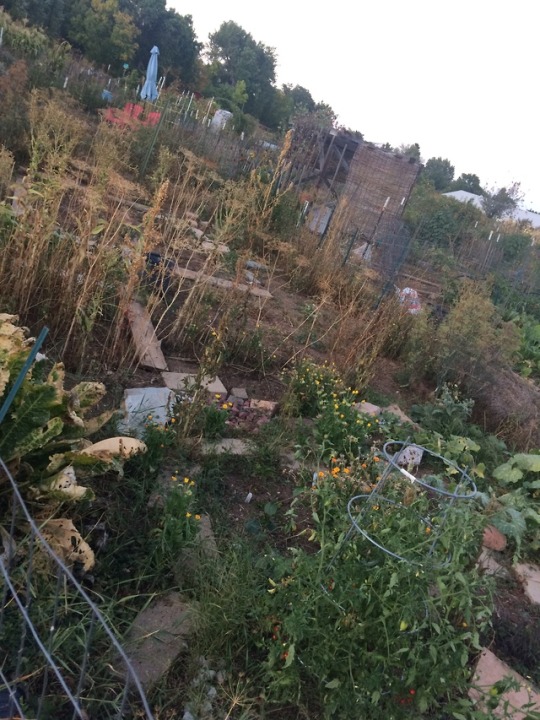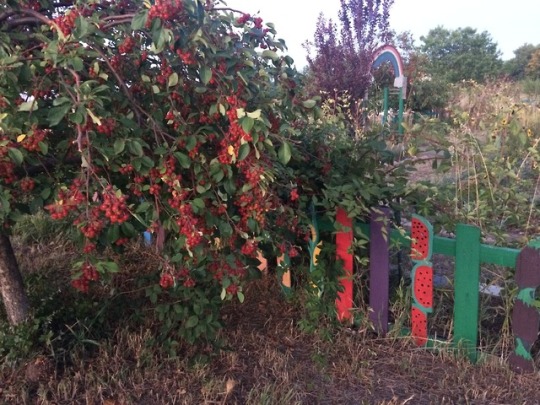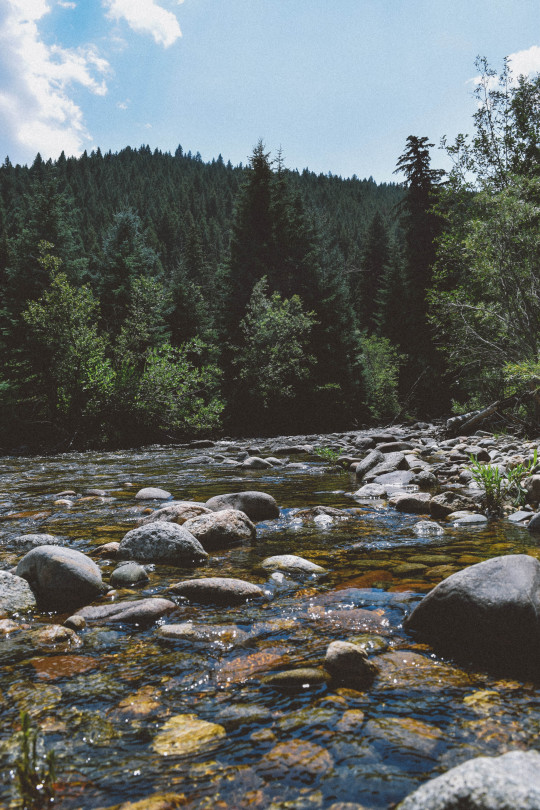Text
Bringing things together
Looking over my various blogs and approach to social media and how I store files and papers I see how distributed I am. I've been trying to bring these different threads together, but some things are deeply ingrained.
0 notes
Text
Audio Recording
I found a recording of myself talking with Hana around 2009. Its hard to listen to oneself talk. It reminds me of these conversations about life and self where you really get to what's important. Hana could go there with me. I really miss that.
I sometimes think of Hana in terms of how much she talked. From this recording, I remember that she was also a great listener.
0 notes
Photo

I'm thinking about place today, and all the different places that make up my history and family history.This is the map I started to write down. Its not really a map, however, just a listing of places in the world, perhaps associated with different times, in roughly chronological order. Its a subset, or perhaps a collection of arrows between subsets, of the space time history of the planet earth. It seems to me that to preserve the earth, and the human species, we need to care about individual places in the present and in history, and also to have a kind of generalized, perhaps scientific appreciation of the whole earth, all the elements, all the plants, all the animals, all the rocks, all the people, all the cultures, perhaps via anthropology and other approaches. My abstract, not fully formed thought for today...
I think that when people meet new people these days, they may compare such maps as part of analyzing how much in common they have. We each have these histories of place and current connections to different places. I continue with what I learned from Wendall Berry, the extremist position in terms of the connection between place and community and sustainable living. How do we extend this concept to something more in tune with the reality of lived lives of many people today?
0 notes
Text
Judas
“Even where the name "Judas" does not appear explicitly, the Western imagination seems fascinated by this theme of the kinship, friendship and even love between the hero and the force that destroys him. “ p. 5, “Judas Iscariot and the myth of Jewish evil“ by Hyam Maccoby
“Judaism has a very different philosophy of evil, although it has never been considered seriously as an alternative to the Christian scheme. Satan has no role to play in the Hebrew Bible, except in the book of Job as a divinely sanctioned provocateur. In the Pseude- pigrapha, Satan does achieve independence, and this promotion is carried even further in Christianity; but normative Judaism never accepted these works into the canon and refused to give Satan more exalted status than he had enjoyed in the Hebrew Bible. He remains simply a symbol of what the rabbis called "the evil inclination", which they viewed as a constituent of human moral structure, and not an independent cosmic principle. Evil, they claimed, was capable of control by human will; its energies could even be harnessed for good. But the corollary was that evil could not be got rid of. It was part of the human condition for ever.21 This fact could only be borne because it was believed that evil was controllable; indeed learning to control it was precisely the human task. More optimistic than Christianity in one way, Judaism was more pessimistic in another.
But its acceptance of evil in man meant that Judaism did not require a supernatural rescue-operation, did not have to recruit the power of evil in a violent salvation-drama, and did not look forward to a genocidal Final Solution.” p. 16
0 notes
Photo



My garden and some more photos at Growing Gardens Hawthorne in Boulder
1 note
·
View note
Text
fanaticism
"Sectarianism, bigotry, and its horrible descendant, fanaticism, have long possessed this beautiful earth. They have filled the earth with violence, drenched it often and often with human blood, destroyed civilisation and sent whole nations to despair. Had it not been for these horrible demons, human society would be far more advanced than it is now. But their time is come; and I fervently hope that the bell that tolled this morning in honour of this convention may be the death-knell of all fanaticism, of all persecutions with the sword or with the pen, and of all uncharitable feelings between persons wending their way to the same goal."
Swami Vivekananda, world parliaments of religion, September, 1893
0 notes
Text
Buying flight tickets
"Over 14,129 travelers have added carry-on bags this week for flights like this" @FlyFrontier Charging more to carry a bag on flight than to check it below. Trying to sell me a credit card before I can buy the flight. Just so annoying. Yeah, I suppose "everyone's doing it".
I go to the Frontier website, and instantly my attention is drawn to the ad suggesting that I fly to Florida or Vegas for $75-already lost time and intentionality. I notice the boxes on the left of the page where I can enter the flight info, but my eyes keep flitting to the ad.
An ad for a Frontier credit card is on the bottom of the screen. I'm again distracted from my goal.
Fortunately my previous search attempt is saved so I don't have to enter it again. I make it to the "Flight Select" page. Now, I'm confronted with the information that if I choose a different day, I will pay a different price. I am not flexible with time,so this is a distraction.
Now, I see a flight available that looks good. I am confronted with two different prices: Standard, or DiscountDen for $10 less. Standard is chosen by default. Clicking on DiscountDen info, I find that they are trying to sell me a membership at this point. I am already angry.
I'm losing patience and decide I just want to buy something as quickly as possible. I click "Continue" at the bottom of the page. I'm led to the "Passenger Info" page.
I now have to enter my name, date of birth, email address, and cell phone number. I am again confronted with an advertisement to get a Frontier Credit card and a big "Apply Now" button, which I have to scroll past in order to get to the "Continue" button.
The next page I am confronted with is the "Bundle It" page,where it is suggested that I choose between 1 of 3 options: "The Perks Bundle","The Works Bundle", or "Customize It". I now realize that the price I was quoted doesn't include a backpack on flight or another bag to check.
I'm now told that bring a bag on flight will cost up to $70 and a checked bag will cost $60. I can also pay $30 to choose my seat, and an undisclosed amount more to have flexibility to change the flight. I now notice the distinction between "personal item" and "carry-on bag".
I'm now in the bind that all these extras would be an additional $140 or $160, making it feel like a lot less of a bargain. I've already decided to try to get through as quickly as possible, but now I know that if I do I will also be upset by making a wrong choice in some way.
I'm told that "We offer exclusive travel bundles so you can get your favorite travel options for less. Plus, bundle benefits apply to your entire booking!" But the prices listed largest are only for one way, so this second sentence is misleading if not false.
Its devious to call absolute basics like bringing a bag on flight, or changing my flight schedule "favorite travel options". This is marketing jargon of the worst kind. Normally I don't write this all out like this, but I find myself upset and distracted by all the dishonesty.
By this point, I've forgotten why I even want to go on this trip, which makes it all the harder to decide whether a "personal item" will be enough, or whether I need the "carry-on bag", not to mention a checked bag.
I spent too long mulling this over, and my session has been cancelled, and I have to start from the first page again.
I reenter my info and get back to continue past the Bundles page. I choose to not purchase one of the bundles. Next I am confronted with the seat selection page. I don't want to pay extra, so I choose to not select my seat. After a stern warning, they allow me to move ahead.
I'm now confronted with the bag selection page. After adding a checked bag but not a carry-on bag (assuming my "personal item" will suffice), I am again asked if I want to add one of the bundles and again it is suggested that I get a Frontier credit card.
The next page asks me if I want to add insurance to my flight. I'm already confused and broken by this point in the transaction, so I have little confidence in my ability to correctly decide if this is needed. A small voice reminds me: saying no to everything is usually best.
Saying no to the insurance offer, I am given a new ad for a car rental deal with the flight. I will need a car rental, but I feel so frustrated that I have little confidence that that could be useful for me at this point.
After a few final last ditch efforts to get me to pay more money, I enter my credit card info and address and finally purchase the tickets. Of course, now there's an effort to sell me a hotel room.
A confirmation arrives in my inbox. I breathe a sigh of relief and wonder which aspects of this process I have bungled and what additional costs or snags are waiting for me around the corner. I hope I at least got the dates and airports correct. I feel awful and overwhelmed.
0 notes
Quote
"So you are a bit mixed up now," Nihat Bey concluded.
And I was. Nihat Bey's words weren't so far off from my own. I had written that the genocide recognition campaigns were hindering diplomatic relations between Armenia and Turkey. I had started to question the value of repeating the same sad stories over and over. But coming from him, the message sounded very different.
Nihat Bey had been educated in the finest and most liberal schools in Turkey and in the United States. He was elegant, generous, and unusually well rounded. He had used his tremendous business success to fund initiatives to protect the environment--his ecology foundation had reforested half of Turkey and was the engine behind the country's new environmental standadrs. With the orchestras he sponsored, he promoted peace through music. The man had built a sprawling botanical garden on the outskirts of Istanbul, and extraordinary haven for quiet reflection, in memory of his late wife. He had been alive in the world since 1925. He had even been to Armenia. But none of this meant he believed that what had happened was a genocide.
p. 80, “There was and there was not- A journey through hate and possibility in Turkey, Armenia, and beyond” by Meline Toumani
0 notes
Text
Evaluating internet tools
The internet is such a useful tool- we communicate with others, we research facts, we find knowledge about the world and do many other things both profound and trivial, practical and entertaining. How to use the internet in a productive way without letting it, and the companies colonizing it, overwhelm us with their agendas (both explicit and implicit)?
I've been moving bookmarks around and working on my modest interface to the internet I use. Basically I have a few simple html files with links to other simple pages with links, or links to TiddlyWiki files (http://tiddlywiki.com/) that I access via Firefox. Tiddlywiki has been one of the most useful tools I've found for my personal approach to organizing links and exploring new topics via the internet. I like that the files are stand-alone, depending only on JavaScript. So its not dependent on either a start-up company that may disappear, along with my data in the near future, or else a larger advertising based company that will seek to transform my data, mine my data, and get something of value out, for which I must be constantly on guard.
Moving to the US seems like a good time to reevaluate my use of different tools. Along with Facebook, there is gmail, Twitter, tumblr, Diaspora, Skype, blogs on Blogspot, and then the corresponding incarnations of these tools on my iphone which also adds a few more such as WhatsApp and Telegram, SMS and telephone.
Its been a time of amazing growth of all these internet technologies. I think its time we figured out what we want to do with them and made some choices that can result in some longer term stability that doesn't erase our history, compromise our humanity, compromise our democracies, reduce our meaningful interactions with others and lead to narrow filter bubbles trapping us in a small perspective. (Thinking partly of this article by David Byrne: https://www.technologyreview.com/…/eliminating-the-human/amp linked to by a friend on Facebook yesterday.)
0 notes
Text
Conversation
“Why were you in prison?” Dalia asked.
“Because I love my country,” Bashir replied.
Funny, Dalia thought. I also love my country, and I haven’t been imprisoned. She realized, however, that Bashir’s recounting of his incarceration was not meant to display his Palestinian nationalist credentials; rather, he was trying to protect her. Bashir was being watched, and if Dalia came upstairs, she, too, would risk surveillance. The irony was that Bashir was trying to shield Dalia from the eyes of her own army, of which she was now a part. She was faced with a decision, and she came to it quickly: she would not allow anyone to tell her whom she could or could not see. She looked at Bashir’s thin, clean shaven face and his large brown eyes. “Please,” she said “Let us have a visit.”
p 157, “The Lemon Tree”, by Sandy Tolan
0 notes
Text
local/global
The process of finding a new job can be painful, since one feels pulled in many directions with no idea where one will emerge. I try to use it as a chance to get to know the world. I try to learn about all the possible places I could go and create some kind of continuity between where I am now and these places and jobs.
Yesterday, someone casually suggested that I should get a job in Australia. To me, to casually consider moving anywhere in the world is to be ungrounded and to lose one's center and many things I find most important about life in any given place. It can also be disrespectful to those places, their history, languages, cultures and infrastructure.
At the same time, the world does need to find a way to come together. We need to feel more at home on the earth as a whole, and less tethered to national identities. But this view suggests a giving up on national politics which can mean ceding this ground to the most reactive elements and perspective.
I did decide that I won't be going to China. No offense to China, just that I need to build a life that has some kind of cohesiveness to it. Similarly, I don't see myself going to Brazil, and most likely not to Australia.
Actually, this process of creating continuity is something I've been working on for a long time. I have tried to live in Europe and not lose touch with the US, and more particularly keep contact with friends and family in California and with my mom and step dad in Iowa.
I suppose many people face this challenge today. We make close friends and have relationships of all kinds, and then those people go elsewhere. Somehow we each create our own personal geography out of the places we have lived and the places those we care about live. It is hard to prune this tree and say that one cares about this place more than that place, but if we don't do this, our geographical tree grows out of control and doesn't support us.
These metaphors are insufficient and misleading, but we need to find ways to talk about place and life trajectories that both allows for the mobility but doesn't disrespect culture, politics and tradition that have very strong geographical bases.
0 notes
Text
How Hitler was seen in 1933
http://www.zeit.de/wissen/geschichte/2017-02/adolf-hitler-chancellor-appointment-anniversary
0 notes
Text
statement by physicist Lennie Susskind, reminding us to not ignore the actions of Steve Bannon
https://www.youtube.com/watch?v=fV9ajE8c4TI
via Peter Woit:
http://www.math.columbia.edu/~woit/wordpress/?p=9076
0 notes
Text
Khinchin on war and math
In those days [WWI], a young man who had arrived at the front, almost invariably felt that his life had been disrupted, that what had been the substance of his life before had become for him an unrealizable legend. Now, however, [WWII] there are some who write dissertations in the intervals between battles, and defend them on their return during a brief furlough!
0 notes
Text
Learning from the past
Sometimes we look at the world today, and we think it is repeating the past. Trump=Hitler. Or Mussolini. Or Berlusconi.
Muslims are being demonized in the US and also in Europe. We think to the Holocaust. We think to the other genocides of the 20th century. Will humanity do "that" again?
The world has also been through terrible wars. The US dropped nuclear bombs on Japan. Men fighting in trenches, shooting each other. Walls built to protect, to decide who we are and who they are.
Somehow it seems to me that we need to find the balance between looking to the past to learn from, to understand our own terms, language, conditioning, context, etc. and at the same time keeping open this window of the unknown. Didn't Nietzsche write an essay on the uses of history?
https://www.goodreads.com/book/show/932408.On_the_Advantage_and_Disadvantage_of_History_for_Life
0 notes
Text
Orwell’s socialism
Orwell’s ‘Socialism’ is, in a precise sense, existential: a matter of personal integrity, a way of preserving oneself in a deeply corrupt and corrupting world. There is, I suggest, a further way in which Orwell’s Socialism, understood thus, is organically related to his later ‘anti-totalitarianism’. It is the possibility of endless, endlessly defeated rebellion-- a state of permanent ‘victimhood’, which accounts, at least in part, for the grip of the theory of totalitarianism, with its implicit idea of an entity which is simultaneously absolutely evil and absolutely powerful, upon Orwell’s imagination.
--Alok Rai, p80
0 notes
